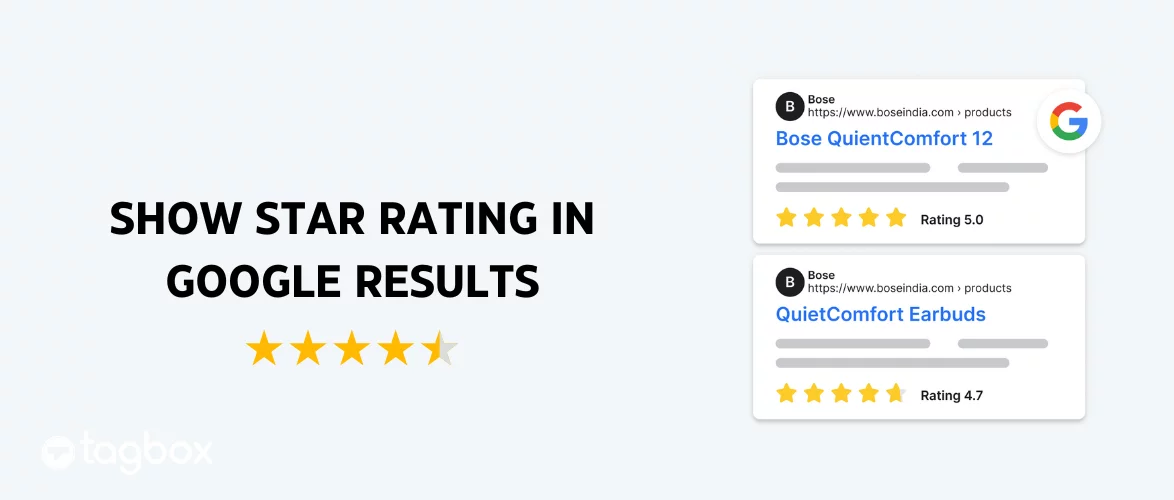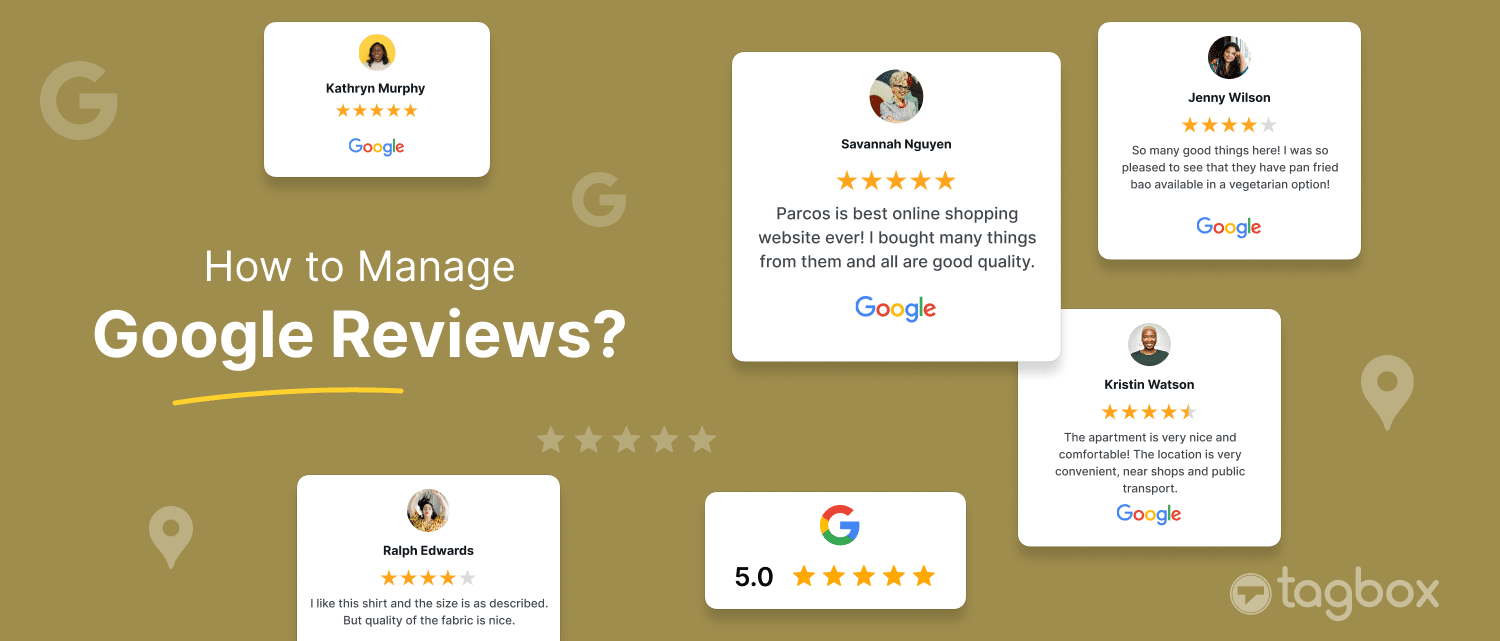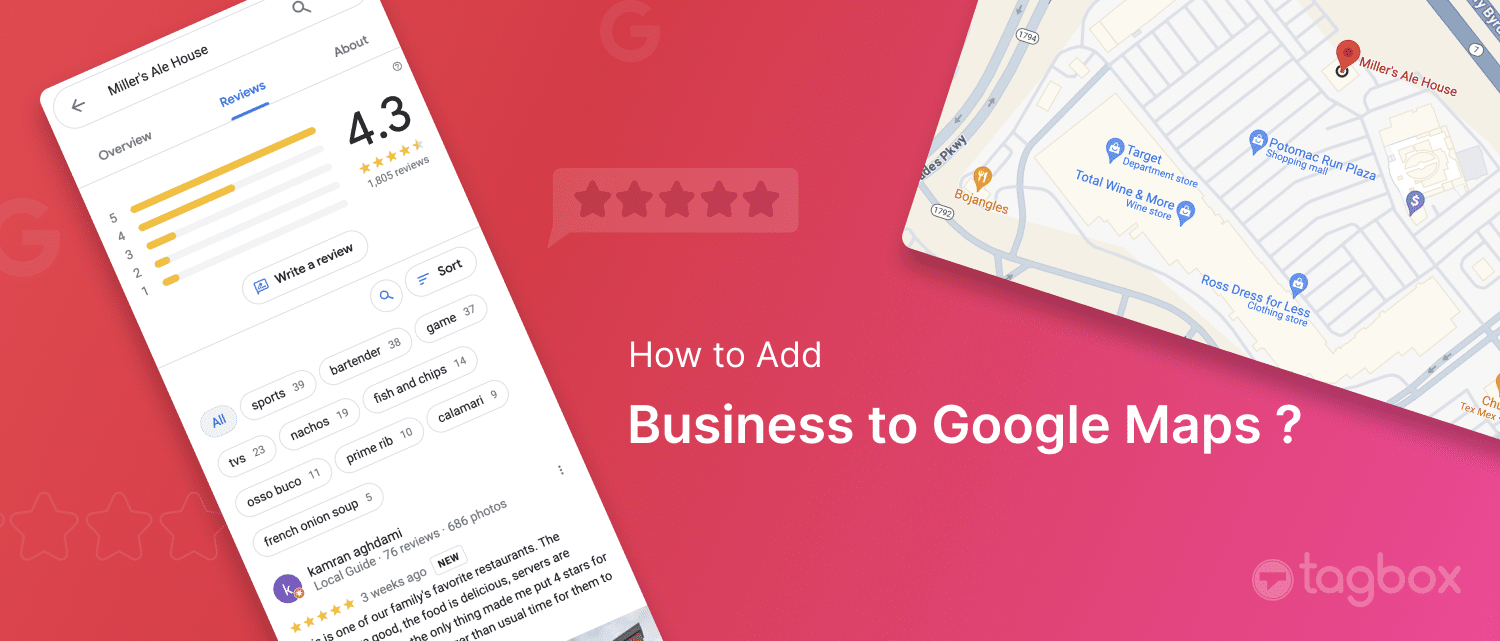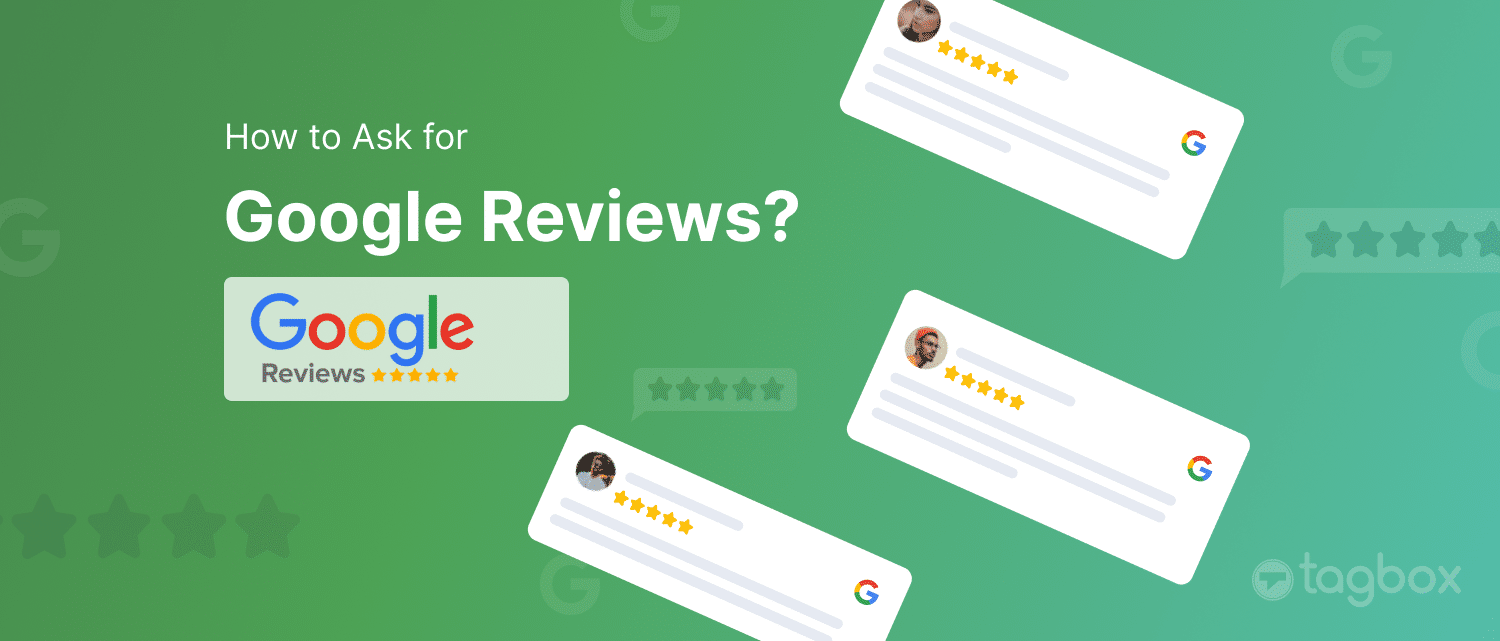Read summarized version with
Google Reviews are an important part of a brand’s online presence, and it is important to manage them to get the maximum benefits. One of the major issues associated with review management is fake reviews.
Google has strict guidelines against fake reviews, making it important for brands to identify and take strict action against them.
Let’s try to understand how a brand can pick out fake reviews and what can be done to avoid them.
What is the Google Reviews policy?
Google’s review policy maintains a fair online environment for all brands with Google Business Profiles. These review policies prohibit fake, misleading, or biased content, emphasizing genuine user experiences. Reviews must be relevant to the business and the work the brand does. Users should never post multiple reviews for the same experience as per the Google Review Policy. Inappropriate content, such as hate speech or personal information, is strictly forbidden by Google.
Google discourages conflicts of interest and encourages constructive feedback. The policy also addresses attempts to manipulate ratings and reviews, promoting transparency and credibility. Adherence to these guidelines ensures a reliable platform for users to make informed decisions based on authentic feedback.
Add Google Review on website with Google Reviews Widget. Start a free trial and display your Google reviews now. Click below to try it for free:

Harness The Power Of UGC In Hospitality
Also Read – Clever Ways to Ask Google Reviews Examples
How to Spot Fake Google Reviews?
There are several ways one can identify fake reviews, and brands must know these ways so that they can take action. The following are some of the major ways you can find fake reviews among the ones posted on your Business Profile.
Checking Languages and Content Style
- Authentic reviews are often detailed and have a balanced perspective. Most of the real reviews make the reader understand the exact concern they faced regarding the specific service/ product they encountered.
- You can identify a review as fake if it is vague and extreme in its nature. This means that if a review is over-enthusiastic or excessively negative, without specific details about your brand, it is likely to be fake.
- You can understand the exact problem of the reviewer after reading an authentic review. Whereas a fake review will clearly state its nature, but will never give a detailed explanation about their experience because they never had one.
Review Similarity
- You can easily find out fake reviews from the pattern they follow. There are several instances when a series of fake reviews is posted on your Google Business Profile. These can be identified easily as they mostly look almost the same.
- Reviews with identical phrases, structure and posted at almost the same time are mostly fake and generated by a computer. Similar reviews also suggest coordinated efforts made to create a particular image about your brand, which is against Google Review guidelines. Hence, actions should be taken as soon as possible to avoid action from Google itself.
Reviewer Profile
- There are review profiles that are created specially to add fake reviews. Hence, if you ever have a suspicion about a review, you can check for the reviewer’s profile. If all the reviews posted by the reviewer are similar, then it is most likely a fake review.
- You can check the previous reviews of that reviewer and check if there are details that hint that they have actually used the product. If there are no such details, it is highly possible the reviewer has never used any of those products. This puts all those reviews in the review in the category of fake reviews.
Check Review Dates
- Checking review dates is another effective way to identify a fake review. A sudden increase in reviews within a span of 1-5 minutes might mean that these are fake reviews. This indicates a concerted effort made to change people’s opinions about your brand that might have a negative impact.
- Authentic reviews are mostly spread over time as the number of customers increases. Fake reviews posted at the same time also tend to be similar in structure, which is another good way to identify them. It is very unlikely for multiple people to give similar reviews at the exact same time.
Look For Specific Details

- When a review comes from an authentic mind, you can see specific details that show that the reviewer actually used the product.
- For example: If the review is about a restaurant, it might have specific details about the dishes from the restaurant menu, the ambiance of the place, the waiter’s name, etc. But if the reviews are fake, in most cases, there will be no such details.
- A generic fake review is generally just posted to inflate the average star rating of your Google Business Profile. A brand must always make sure that vague reviews that seem suspicious are flagged so that Google can review them.
Check for Review Bias
- There have been instances in the past in which the reviews posted by the customer are driven by bias. It is not rare to see competitors leaving negative reviews about the products or services you offer.
- With that being said, it is also possible that your friends or dear ones post positive reviews without experiencing the product. This also marks the review under the category of fake reviews and hence should be avoided at all costs.
- To identify such reviews, one should look out for the language used in the review. If the review is extremely critical or supportive without any hard evidence, it is likely to be written out of bias.
Using Review Analysis Tools
There are several online tools that are specifically designed to analyze the reviews and identify whether they are real or not. Tools like Lexalytics, Qualtrics, TalkWalker, etc. analyze the reviews from various parameters such as patterns, format, and content, indicating potentially fake reviews.
While not being 100% accurate, these tools can provide valuable insights that can help you decide whether you think the review is fake or not. An added layer of scrutiny.
Show Google Business Reviews On Your Website Now!
- Google Place ID
- Google Maps
Take 14-Days Free Trial
Signup Now
Why Fake Google Reviews are Considered a Concern for a Business?
The following are the major reasons why fake reviews mean bad news for your brand and why you must avoid them.
1. Customer Feedback Distortion
Fake reviews create a distorted representation of customer feedback, hindering a business’s ability to accurately assess its strengths and weaknesses. By introducing fabricated positive or negative experiences, these Product Reviews can mislead businesses into making misguided decisions.
Authentic customer feedback is valuable for identifying areas of improvement and enhancing overall performance. Distorted feedback not only prevents businesses from addressing genuine concerns but may also lead to misguided strategic decisions.
The distortion of customer feedback undermines the very purpose of reviews, which is to provide honest insights that contribute to a business’s growth and customer satisfaction.
2. Impact on SEO
Fake reviews on Google significantly affect a business’s search engine rankings. Search algorithms prioritize relevance and reliability, and if fraudulent reviews are detected, it can lead to a drop in rankings.
Google aims to provide users with accurate and trustworthy information, and businesses engaged in review manipulation may face penalties. Lower rankings mean reduced visibility, impacting a business’s online presence and potential customer reach.
Authentic reviews contribute positively to search rankings, highlighting the importance of genuine customer feedback in building and maintaining a solid online reputation. Maintaining integrity in reviews is essential for sustained visibility and success.
3. Waste of Resources
Engaging in the creation of fake reviews represents a misguided allocation of valuable resources. Businesses investing time and effort in fabricating positive reviews could better use those resources to enhance the actual customer experience.
Authentic positive reviews, stemming from genuine customer satisfaction, are more sustainable and contribute to long-term success. The energy expended on generating fake reviews could be redirected toward improving products, services, and customer interactions.
A focus on delivering quality and addressing genuine concerns not only builds a positive reputation but also ensures that resources are invested in activities that genuinely benefit the business and its customers.
4. Competitive Disadvantage
Resorting to fake reviews may offer a temporary advantage, but it ultimately places a business at a competitive disadvantage.
While fabricated positive reviews might attract initial attention, businesses with authentic positive reviews and a solid reputation enjoy sustained customer trust. Genuine positive feedback builds a foundation for long-term success, fostering customer loyalty and positive word-of-mouth.
Competitors with authentic reviews are likely to outperform those relying on deceptive practices, gaining an edge in customer acquisition and retention. The trust and credibility established by authentic reviews provide a competitive advantage that transcends short-term gains associated with fraudulent tactics.
5. Potential Customer Loss
Customers rely on reviews to make informed decisions, and if they discover manipulated or deceptive reviews, they may lose trust in the business. Misleading reviews can create false expectations, leading to disappointment for customers who expect a different experience.
The potential loss of customers occurs when individuals choose competitors with more reliable and trustworthy reviews. Since customer decisions are heavily influenced by online reputation, businesses with fake reviews may struggle to attract and retain a customer base, resulting in missed opportunities and decreased revenue. Trustworthy reviews are essential for building and maintaining customer loyalty.
6. Impact on Brand Reputation
Fake Google reviews can have a detrimental impact on a business’s reputation. Reviews play a crucial role in shaping public perception, and fraudulent reviews can misrepresent the actual customer experience. A tainted reputation may lead to a loss of trust among potential customers, as they rely on reviews to gauge the credibility of a business. Using fraud detection software like Sift can help businesses detect and prevent fake reviews by automatically identifying suspicious activity and patterns of fraud, ensuring that only authentic feedback affects their online reputation.
Negative consequences include a damaged brand image and decreased customer confidence. Maintaining an authentic and positive online reputation is vital for attracting and retaining customers. Businesses that prioritize genuine customer feedback foster trust, enhance their reputation, and position themselves as reliable and customer-centric entities.
7. Legal Consequences
Engaging in the creation of fake Google reviews carries potential legal ramifications for businesses. Fabricating reviews violates the terms of service of most review platforms, including Google.
Businesses caught in such deceptive practices may face legal consequences, such as fines or legal action. The legal framework surrounding online reviews aims to maintain the integrity of consumer feedback and ensure fair competition. Legal actions against businesses involved in review manipulation serve as a deterrent, emphasizing the importance of ethical business practices.
Adhering to the law in online reviews is not only an ethical imperative but also safeguards a business from potential legal liabilities.
Display Google Profile Reviews On Your Website Now!
- Google Place ID
- Google Maps
Take 14-Days Free Trial
Signup Now
How to Remove Fake Google Reviews?
To report fake Google reviews, a brand must follow the following steps:
1. Identify the Review: Locate the specific fake review you want to report.
2. Sign in to Your Google Account: Log in to the Google account associated with your business.

3. Navigate to Google Maps: Open Google Maps in your web browser.

4. Find Your Business: Search for your business and select it from the results.

5. Locate the Reviews Section: Scroll down to the “Reviews” section.

6. Flag the Review: Click on the three dots (ellipsis) next to the fake review. Choose the option that says “Flag as inappropriate” or a similar option.

7. Provide Details: Follow the prompts to provide specific details about why you believe the review is fake or violates Google’s policies.

8. Submit the Report: Click on the appropriate button to submit the report.

9. Monitor Progress: Google will review your report, and you can check the status by going back to your Google My Business account.
Moderate Google customer reviews add them on your website with Taggbox
Signup NowWhy is reporting fake Google Reviews Important?
Below are the major reasons why it is important for a brand to report fake reviews on its Google Business Profile. A brand must be aware of these reasons to understand the importance of the same.
1) Improving Platform Credibility
Reporting Google fake reviews is pivotal for enhancing platform credibility. Online review platforms serve as trusted sources for consumer insights, and addressing fraudulent reviews bolsters the platform’s reliability.
Users are more likely to engage when confident in the authenticity of reviews, fostering a community where genuine feedback prevails. By actively curating content and maintaining high standards, platforms elevate their standing in the eyes of businesses and consumers alike.
Enhanced credibility attracts more users, creating a positive cycle where reliable information and trustworthy reviews become synonymous with the platform’s identity, ultimately benefiting the entire online community.
2) Preserving Brand Credibility
Reporting fake reviews is instrumental in safeguarding brand integrity. A business’s reputation is closely tied to the authenticity of its online presence, and fake reviews can tarnish this image.
By identifying and reporting deceptive practices, businesses uphold their commitment to transparency and ethical conduct.
Preserving brand integrity ensures that consumers perceive the business accurately, promoting trust and loyalty. Authentic positive reviews, untainted by deceit, become the foundation for a strong brand identity.
This commitment to honesty not only attracts customers who value transparency but also strengthens the brand’s position in the market, contributing to long-term success.
3) Protecting Customers
Reporting fake reviews is a crucial step in protecting consumers from misinformation. Identifying and reporting deceptive practices ensures that customers can rely on reviews as authentic reflections of others’ experiences.
By taking action against fake reviews, individuals are shielded from potentially harmful decisions based on misleading information. This proactive approach contributes to a more trustworthy online environment where customers feel secure in their purchasing decisions.
It aligns with the collective interest in promoting transparency and fairness in the marketplace, allowing consumers to make informed choices and fostering a sense of confidence in the credibility of online reviews as a valuable resource.
4) Ensuring Fair Competition
Reporting fake reviews is pivotal for maintaining fair competition in the business landscape. Identifying and addressing deceptive practices prevents businesses from gaining an unfair advantage through manipulative tactics.
Genuine competition thrives when all participants operate on a level playing field, emphasizing product quality and customer satisfaction. By reporting fake reviews, businesses contribute to an environment where success is earned through merit rather than deceptive strategies.
This commitment to fair competition benefits both businesses and consumers, fostering innovation and encouraging companies to focus on delivering value rather than relying on dishonest practices to gain a competitive edge.
5) Enhance User Experience
Reporting fake reviews plays a vital role in improving the overall user experience. A cleaner, more reliable review ecosystem ensures that users can trust the information they find online.
By actively addressing fraudulent reviews, platforms create an environment where users can make well-informed decisions based on authentic feedback. This contributes to a positive user experience by reducing the risk of misinformation and creating a sense of confidence in the reliability of reviews.
Users are more likely to engage with platforms that prioritize authenticity, leading to a more satisfying and trustworthy experience for those seeking valuable insights before making decisions.
6) Legal Compliance
Reporting fake reviews aligns with legal compliance and ethical standards. Fabricating reviews violates the terms of service of most online platforms, including Google, and may lead to legal consequences for the businesses involved.
By reporting such deceptive practices, individuals contribute to maintaining a legal and ethical online environment. Upholding these standards protects both consumers and businesses, ensuring fair competition and preventing fraudulent activities.
Legal compliance in online reviews is essential for fostering trust in the digital marketplace and creating an environment where businesses operate ethically. Reporting fake reviews reinforces the importance of abiding by the law and promotes a culture of transparency and honesty.
Conclusion
With the information you got from the content above, it will now be easier for you to identify a fake review. We have discussed the importance of identifying fake reviews and what steps can be taken to avoid them.
You can use the information from the above content for better review management for your Google Business Profile.









